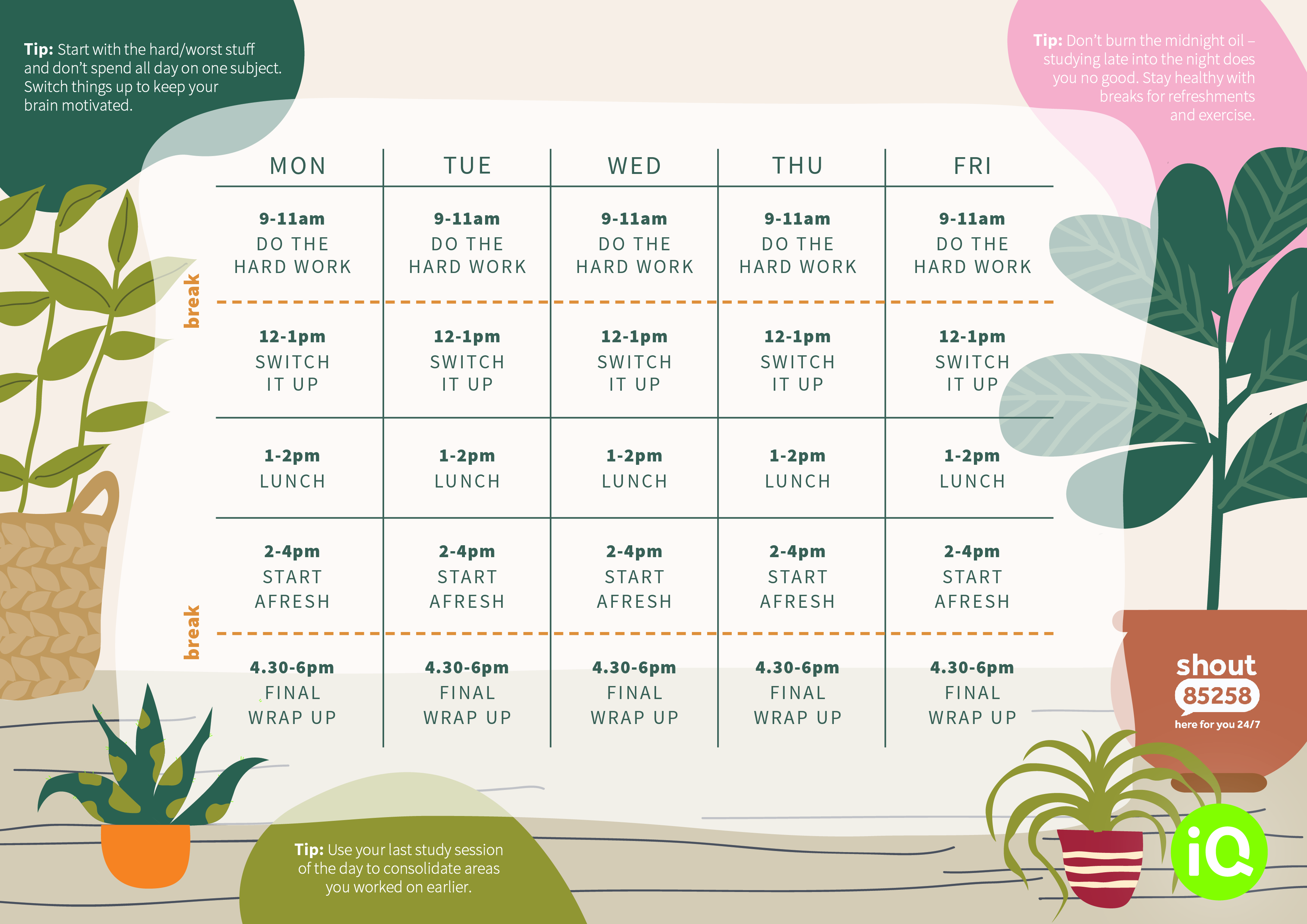5 revision techniques for exam success
When it comes to the ‘perfect’ technique for revising for exams, it’s safe to say that there isn’t a universal method for everyone. Whether you are someone who sticks to a regimented schedule or if to-do lists are more your thing, the differing techniques are endless.
Most students, by the time they reach university, have experienced many exams and so already have an idea of what works best for them. But this is certainly not the case for us all.
If you are having trouble finding the ‘best revision technique’ or a way to perfect your method, here are a selection of revision and exam tips to help you get prepared.
Revision routine
First structure your day, this can help you find the perfect revision routine.. Getting into a revision routine and starting this early is a fantastic way to prepare your brain and get you ready for the day. Your routine can be something as simple as:
- Get out of bed at 9am every day
- Make coffee
- Play revision playlist
- Go to ‘studying’ spot
- Lunch break at 12:30.
It is important to remember that the time you spend revising is only a short period time, so you should maximize it as best you can. With that being said, try and figure out when you learn best. It could be early in the morning when you feel the freshest, like Cambridge Law Student Elena mentions in her revision tips video. Remember to plan your revision to coincide with these peak productivity times.
Calendar blocking
One method that a lot of students swear by is calendar blocking. This technique helps you structure your revision by deciding on the exact time to spend on the different topics, all within a weekly calendar. If structure is what you love when learning, then this could be a helpful technique for you.
Within your revision calendar, each hour signifies a different task or topic to study. By carrying out a time block schedule, the aim is that you will be able to identify your goals whilst leaving enough time for your priorities. Using Google Sheets an easy way to create your own calendar - but there are a lot of free ‘Calendar blocking’ templates online if you don’t have the time to create your own. You can download ours here.
Important things to remember:
- Plan in free time
- Split up your weekdays and weekends.
- Change your calendar as you see fit- especially if certain tasks or times are not working for you.

To-do lists
Whether you study in a group or prefer to go solo sometimes important topics can be forgotten or fall off the radar – don’t worry, this happens to everyone. Writing daily to-do lists and brain dumping everything you need to do can eliminate this from happening. Whether you decide to write these lists on the morning before your study session, or the night before meeting with your revision group, it can help in making sure nothing is missed.
Optimum working environment
Finding out how you work best is important, but where is also essential. Some students need an environment like the library or a coffee shop, but others revise best in the solitude of their own room. If revising at home is where you decide, check out this helpful studying from home video by Oxford Student, Maninder.
When it comes to your working environment, take in to consideration outside distractions. Time is of the essence when revising, so try to eliminate as many distractions as possible and stick to your revision calendar/ to-do list as best as you can. It may be worth moving your phone away from you if scrolling on Instagram is something that you find yourself doing a little too often, or switching off the TV in the background.
Healthy habits
Finally, eat well, sleep well and exercise. These may seem like obvious tips to mention and not a ‘technique’ – but you will be surprised by how many students neglect sticking to healthy habits, for example working late into the night and snacking on non-nutritional food. This type of behaviour definitely effects not just how you study and but how well you’re able to study.
Try to remember that there are some days where you will feel 100% motivated, ready to revise and conquer the world. Capitalise on these days, as there will be other days when you may feel less keen and that is ok too. Having regular breaks away from revising will help to ensure you don’t burn out.
No matter which techniques you decide to focus on, try to keep an open mind and see what works for you. Nothing has to be concrete, and your best revision technique can change as many times you need it to.
Search
Location inspiration
If you're not sure where you're heading yet, take a look around our properties in all corners of the UK.

Great Newton House, Liverpool

Shoreditch, London